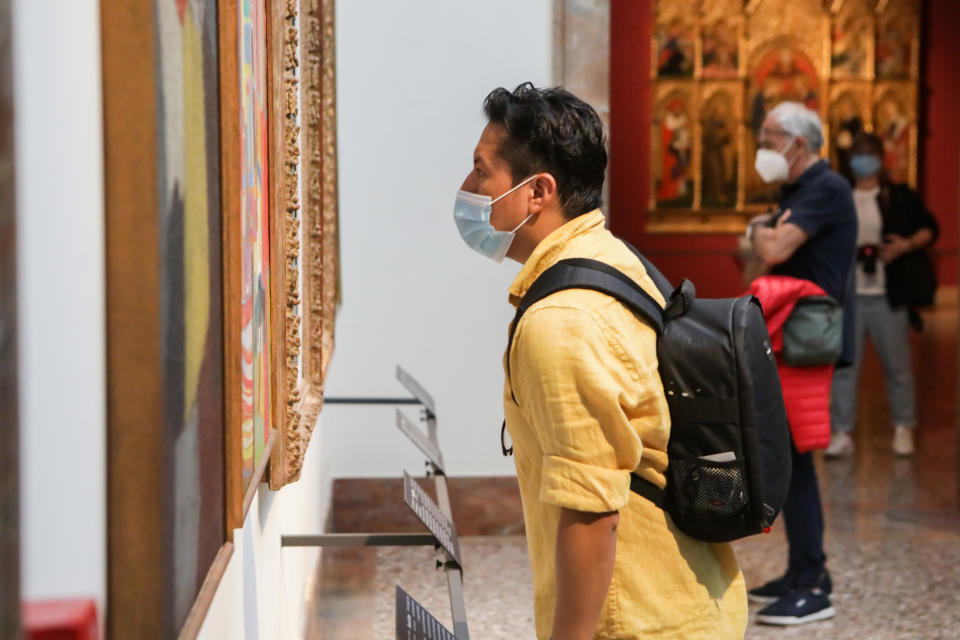Coronavirus: Contact tracer 'not phoned single person' since the system launched nearly two weeks ago

A contact tracer has claimed not to have spoken to a “single person” since the coronavirus test, trace and isolate system launched in England nearly two weeks ago.
As officials work to ease the country out of lockdown, 25,000 tracers have been trained to contact people who have been close to a coronavirus patient, asking them to self-isolate entirely at home for 14 days.
The brains behind the system stressed it would not be perfect on its launch date 28 May, however, a group of scientists insists it is still “not fit for purpose”.
Critics have argued cases are slipping through the net due to local healthcare professionals, like GPs, being excluded from the tracing.
Early research suggests the coronavirus is mild in four out of five cases, however, it can trigger a respiratory disease called COVID-19.

‘Four calls between 200 tracers’
Independent Scientific Advisory Group for Emergencies (Sage), a team of 12 scientists led by former chief scientific advisor Sir David King, has said the UK’s coronavirus outbreak will only be contained if 80% of infected people’s contacts are traced.
The group was formed to provide a “constructive” alternative to the official Sage team, which has come under fire for a lack of transparency over the advice it gives Number 10.
Independent Sage called the 80% benchmark “impossible” under the existing system, which is not being led by local healthcare authorities.
Speaking at an Independent Sage briefing, an anonymous tracer said: “I’ve had over 50 hours’ paid time working and have not phoned a single person.”
A second unnamed worker added: “I can say I have received four weeks’ pay, but not [had to reach out to] a single contact at all.
“Out of 200 tracers at my agency, we have had four [contacts] to call between us.”
The first tracer also criticised the “very inadequate training” and lack of translators.
“I’m concerned the public have been given a false sense of security that we have a functioning test and trace system when we actually don’t,” they said.
A third anonymous caller claimed they were offered a contact tracing role three weeks ago, spent hundreds on equipment like headsets, but is still waiting for training.
“I spoke with [my] recruitment agency today and they're unsure if it will go ahead,” they added.
‘Act now or risk further spikes’
Independent Sage is calling for the system to be revised to “find, test, trace, isolate and support”.
“Find” was added because the group believes many cases are being missed.
Anyone in England with coronavirus symptoms – fever, cough, or loss of taste or smell – can request a test.
If positive, they are contacted and asked who they have spent more than 15 minutes with at a distance of less than 2m.
They will also be asked who they have had sex with, live with and had face to face conversations with.
Contact details will be requested for the individuals the patient was close to between two days before, and up to seven days after, their symptoms emerged.
These individuals will then be asked to self-isolate for 14 days, regardless of whether they have symptoms.
Between 28 and 30 May, just over 1,800 coronavirus patients are said to have registered contacts online or by phone.
Of the 4,600 people they had been close to, 1,750 were contacted by tracers, the BBC reported.
Independent Sage would have expected far higher numbers based on statistics suggesting thousands of new coronavirus cases are emerging every day.
“People don’t know they should ask for a test as soon as they can,” said Professor Christina Pagel from University College London (UCL).
“You’re missing the very first bit of test, trace and isolate, which is find cases.”
Independent Sage is urging for local healthcare professionals, like GPs, to be involved in the system.
“GPs are the backbone of the NHS,” said Professor Anthony Costello, also from UCL.
“If you get a positive test a lot of people will be really worried, you need reassurance, you need someone to monitor you, to refer you, someone who knows your close contacts already [because they may also treat them].
“The idea you exclude GPs from this is absurd.”
Sir King added: “The government has placed huge emphasis on their test, track and trace system in recent weeks, even labelling it ‘world beating’.
“It is clear from our research this simply isn’t the case, indeed the system as it stands is not fit for purpose.
“This is the critical moment for the government to act now or risk further spikes.
“We believe a new approach is required, one that moves away from a centralised system that utilises a local first approach”.

What is the coronavirus?
The coronavirus is one of seven strains of a virus class that are known to infect humans.
Others cause everything from the common cold to severe acute respiratory syndrome (Sars), which killed 774 people during its 2002/3 outbreak.
Since the coronavirus outbreak was identified at the end of 2019, more than 7.1 million cases have been confirmed worldwide, according to Johns Hopkins University.
Of these cases, over 3.3 million are known to have recovered.
Globally, the death toll has exceeded 407,100.
The coronavirus mainly spreads face to face via infected droplets expelled in a cough or sneeze.
There is also evidence it can be transmitted in faeces and survive on surfaces.
The coronavirus has no “set” treatment, with most patients naturally fighting off the infection.
Those requiring hospitalisation are given “supportive care”, like ventilation, while their immune system gets to work.
Officials urge people ward off infection by washing their hands regularly and maintaining social distancing.
Coronavirus: what happened today
Click here to sign up to the latest news, advice and information with our daily Catch-up newsletter
Read more about COVID-19
How to get a coronavirus test if you have symptoms
How easing of lockdown rules affects you
In pictures: How UK school classrooms could look in new normal
How public transport could look after lockdown
How our public spaces will change in the future
Help and advice
Read the full list of official FAQs here
10 tips from the NHS to help deal with anxiety
What to do if you think you have symptoms
How to get help if you've been furloughed



